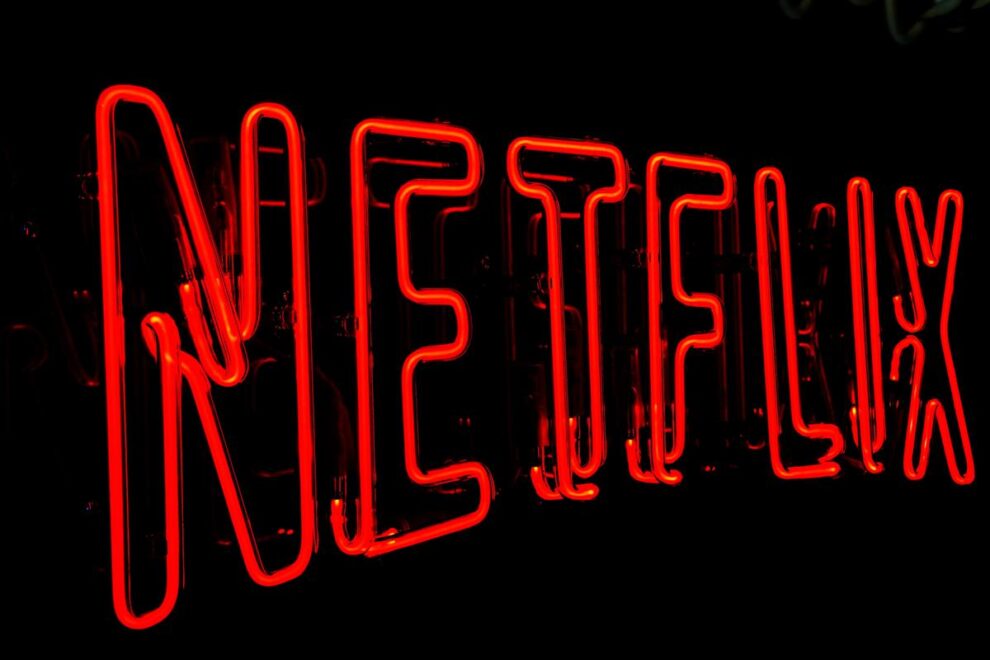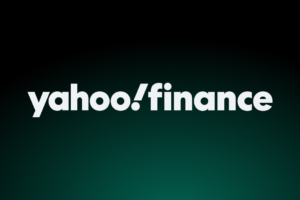
An increasing number of private companies are severing their ties to Russia as Vladimir Putin’s invasion of Ukraine escalates and Western countries impose economic sanctions.
One of the first moves came when Europe’s governing football body, UEFA, relocated the May 28 Champions League final from Russia to Paris, and the European Broadcasting Union barred Russia from competing in the Eurovision Song Contest.
Since then, a torrent of corporations have come out in support of Ukraine and cut business ties with Russia, ushering in a wave of private sanctions on the country.
On Sunday, China-based TikTok said it was suspending livestreaming in Russia amid the country’s new “fake news” law that’s aimed at silencing dissent and limiting information about its invasion of Ukraine. And Netflix announced it was shutting its operations in Russia, making it one of the largest media companies to pull out of the market following the attack on Ukraine.
Here is a rundown of Western companies that are exiting Russia in the face of escalating tensions.
Netflix
Netflix Inc. is shutting its operations in Russia, one of the largest media companies to pull out of the market following the attack on Ukraine.
No new customers will be able to sign up and it’s unclear what will happen with existing accounts, the company said. The service has more than 1 million customers in Russia.
The streaming giant said previously it won’t be carrying required Russian news channels on its local-language service in the country and has also paused all projects and acquisitions from Russia, including four Russian original programs in production.
TikTok
The decision by TikTok, which is owned by China-based ByteDance Ltd., comes after Russia’s parliament passed harsh laws that would impose prison terms for people charged with spreading “fake news” about the military or calling for sanctions against Russia. The short-video social-media platform popular among teens eclipsed a billion users last year.
“We have no choice but to suspend livestreaming and new content to our video service while we review the safety implications of this law,” the company announced in a series of tweets.
Airbnb
The accommodation-sharing company is suspending its operations in Russia and Belarus, Chief Executive Officer Brian Chesky said in a tweet.
Russia has more than 90,000 active short-term rentals across various platforms, according to data provided by market research firm AirDNA. Minsk, the capital of Belarus, has just over 1,800 active short-term rentals. Chesky had earlier said that sanctions imposed by the U.S. and other countries had made business within Russia difficult.
Ikea
The Swedish furniture giant has closed all stores in Russia and has stopped sourcing materials from the region and neighboring Belarus.
Ikea has 17 stores in Russia and the move to pause operations will have a direct impact on 15,000 workers, according to a company statement.
Hermes
The luxury fashion house is “deeply concerned by the situation in Europe”, according to a brief LinkedIn statement, and will temporarily shut down its stores and halt commercial operations in Russia.
The car giant, which comprises 10 brands including Audi, Lamborghini, Bentley and Porsche, has slammed the breaks on production of its vehicles in Russia.
It has also stopped exports to the country with immediate effect.
Alcoa
The largest U.S. aluminum producer Alcoa said on Wednesday it would stop selling products to Russian companies and halt raw-material purchases from the country, making it world’s first major aluminum maker to shun Russia in response to the invasion of Ukraine.
In a letter to employees, Alcoa CEO Roy Harvey said that while Alcoa does not have operations in the Ukraine or Russia, “in response to the current aggression, Alcoa will cease buying raw materials from, or selling our products to, Russian businesses,” adding “after close consideration, we’ve decided now is the time to act.”
H&M
H&M announced late Wednesday it would temporarily suspend all sales in Russia and shutter more than 150 stores in the country, as clothing brands join the boycott.
H&M stores in Ukraine have also been temporarily closed for “the safety of customers and colleague,” H&M said in a statement.
The fast fashion retailer’s decision to exit Russia was shortly followed by online fashion retailer ASOS also halting sales to Russia, saying on Thursday it is “neither practical nor right” to continue doing business there. After the announcement, ASOS’s share price slid 10% in London trading.
Grant Thornton
Grant Thornton became the first large professional services firm to cut ties with its Russian auditing unit on Wednesday—a decision that was not followed by the other consultancy firms Bain, McKinsey, and Boston Consulting Group (BCG), nor the Big Four accounting firms.
As part of its decision to exit Russia, Grant Thornton is dropping its ties with FBK, its Russia-based 500-person team that previously audited Russia state-owned oil company Gazprom, citing “the conflict in Ukraine”.
Airbus
Airbus on Wednesday announced it would stop sending spare parts to Russia and would end its support of Russian airlines. The decision to cut ties with Russia follows Boeing’s decision from a day earlier, but unlike its U.S. rival, Airbus said it was analyzing whether its Moscow engineering center would have be shut down under current sanctions.
“In line with international sanctions now in place, Airbus has suspended support services to Russian airlines, as well as the supply of spare part to the country,” the company said in a statement.
It added that the Airbus Engineering Centre in Russia (ECAR) has put all its operations on hold in line with sanctions, but “regarding engineering services ECAR provides to its Russian customers, ECAR is analyzing the export control sanctions to determine if this activity can be maintained in line with the sanctions.”
Boeing
Boeing announced late on Tuesday it suspended parts, maintenance and technical support for Russian airlines and ceased all of its operations in Moscow. It made the decision to do so eight hours before Airbus and was the first western aircraft manufacturer to do so.
“As the conflict continues, our teams are focused on ensuring the safety of our teammates in the region,” a Boeing spokesperson said. In Moscow, Boeing has a technical research center and its largest engineering center for computer-aided aerostructure design outside the United States, according to Reuters.
Russia operates a fleet of 700 Western aircrafts and without the technical support of Boeing and Airbus, the country’s airline industry is extremely isolated.
ExxonMobil
U.S. oil major ExxonMobil announced on Tuesday it is exiting a major oil and gas project in Russia and will cease investing in the country, following similar decisions made by other Western oil giants BP, Shell and Equinor.
Exxon said it was “discontinuing operations” at the Sakhalin-1 project, one of the largest foreign-operated oil and gas fields in Russia, located in the far east above Japan, and halting new investment in a potential $9 billion liquefied natural gas export facility.
The move adds further pressure on Russia’s oil and gas sector which relies heavily on foreign investment and expertise. Exxon said it has more than 1,000 employees in Russia and in a regulatory filing, noted its “long-lived assets” in the country were valued at around $4 billion at the end of 2021.
Apple
Apple announced Tuesday that it would be pausing all product sales in Russia, after stopping all exports into the country last week. Apple Pay will be limited there as well, and RT News and Sputnik News will not be available on the company’s app store outside Russia. The company also disabled traffic and live incidents in Apple Maps in Ukraine in what they say is a safety and precautionary measure for Ukrainians.
“We are deeply concerned about the Russian invasion of Ukraine and stand with all the people who are suffering as a result of the violence,” the company wrote in a statement. “We are supporting humanitarian efforts, providing aid for the unfolding refugee crisis, and doing all we can to support our teams in the region.”
Ford
The American auto company said Tuesday that it was suspending operations in Russia, effective immediately and until further notice. The company said they had “significantly wound down” its Russian operations over the years, which until now mostly included a minority interest in the Sollers Ford joint venture.
“While we don’t have significant operations in Ukraine, we do have a strong contingent of Ukrainian nationals working at Ford around the world and we will continue to support them through this time,” the company wrote in a statement.
The company added that it was making a $100,000 donation to Global Giving Ukraine Relief Fund.
Maersk
Danish shipping giant Maersk said on Tuesday it would stop taking new, nonessential orders to and from Russia, due to sanctions imposed over the Ukraine invasion. “Bookings to and from Russia will be temporarily suspended, with exception of foodstuffs, medical, and humanitarian supplies,” Maersk said in a statement according to AFP, adding it would try to honor bookings placed prior to the sanctions.
Maersk generated roughly 2.5% of its total revenue from Russia last year and operates container shipping routes to and from St. Petersburg and Kaliningrad in the Baltic Sea, Vladivostok and Vostochny on Russia’s east coast, and Novorossiysk in the Black Sea. Maersk said the suspension would “cover all Russian gateway ports until further notice.”
Shell
Shell has joined the list of oil and gas companies exiting their interests in Russia. The Anglo-Dutch energy giant announced it was exiting its joint ventures with Russian state-owned energy firm Gazprom and other related entities, which in total are worth around $3 billion.
The planned sale notably includes Shell’s 10% equity stake in the controversial Nord Stream 2 pipeline project. The $10 billion pipeline was going to run from Russia to Germany, doubling Europe’s gas imports from Russia, but was halted by Germany on Feb. 22 after the Ukraine invasion.
Other things included in the sale are Shell’s 27.5% stake in Sakhalin-II liquefied natural gas (LNG) facility, and its 50% stakes in the Salym Petroleum Development and the Gydan energy venture.
Mastercard and Visa have both blocked certain Russian activity from their payment networks on Tuesday to comply with international sanctions.
“Visa is taking prompt action to ensure compliance with applicable sanctions, and is prepared to comply with additional sanctions that may be implemented,” the firm said in a statement Tuesday.
The sanctions require Visa to suspend access to its network for entities listed as Specially Designated Nationals, otherwise known as a company or individual acting on behalf of sanctioned country, according to Reuters.
Mastercard said in a similar statement late Monday, “as a result of sanction orders, we have blocked multiple financial institutions from the Mastercard payment network. We will continue to work with regulators in the days ahead to abide fully by our compliance obligations as they evolve.”
Jaguar Land Rover
Jaguar Land Rover has paused the delivery of its cars to Russia due to “trading challenges,” the carmaker said in a statement, alluding to sanctions imposed on the country.
“The current global context also presents us with trading challenges, so we are pausing the delivery of vehicles into the Russian market and continually monitoring the situation on behalf of our global customer base,” it said.
Jaguar Land Rover joins Volvo in cutting off its sale of cars to Russia.
Meta
Facebook parent Meta barred Russian state media from running ads or making money on its platform worldwide on Friday.
In response, Moscow said it would partially limit its citizens’ access to Facebook, accusing the social media giant of “censoring” Russian media.
Additionally, Meta announced on Monday it had taken down a disinformation network on Facebook and Instagram after finding Russian news sites posing as independent news entities using fake personas to share the content across social media platforms including Facebook, Instagram, Twitter, YouTube, Telegram, and also Russian Odnoklassniki and VK. Meta then restricted access to Russian state media outlets RT and Sputnik on its platforms across the European Union.
A day after Meta’s ad ban, Alphabet’s Google did the same, barring Russia’s state-owned media outlet RT and other channels from receiving money for ads on their websites, apps, and YouTube videos. Google also barred Russian state-funded media outlets from using its ad technology to generate revenue on their own websites and apps.
Google said it had removed hundreds of YouTube channels and thousands of videos for violating its policies and noted it would continue to disrupt Russian disinformation campaigns and hacking.
Russia’s state communications regulator, Roskomnadzor, has since demanded Google restore access to Russian media’s YouTube channels, which includes videos produced by RBC, Zvezda TV, and Sputnik, in Ukrainian territory.
Then, in a similar move to Facebook, YouTube announced on Tuesday it would block channels connected to RT and Sputnik across Europe. The changes are underway, but Youtube noted, “It’ll take time for our systems to fully ramp up.”
BP
BP announced today it was dumping its 19.75% stake in Russian state-owned energy giant Rosneft, which is likely to result in the British energy group taking a $25 billion hit.
In a letter to staff on Sunday, BP CEO Bernard Looney wrote that the company intended to exit any related activities in Russia with Rosneft, and that he and BP’s former CEO Bob Dudley would both immediately resign from the Rosneft board.
Equinor
Norwegian oil and gas producer Equinor said on Monday it would exit its joint ventures in Russia and will stop all new investments in the country. Equinor has a partnership with Rosneft that includes projects throughout Siberia.
Anders Opedal, Equinor’s CEO, called the company’s position in the current situation “untenable,” and Equinor chair Helge Lund described Russia’s invasion of Ukraine as an “act of aggression, which is having tragic consequences across the region.”
Equinor is two-thirds owned by Norway’s government.
Norway’s sovereign wealth fund
Norway’s prime minister said on Sunday that the country’s $1.3 trillion sovereign wealth fund, the world’s largest, will divest all its Russian assets. “We have decided to freeze the fund’s investments and have begun a process of selling out,” Prime Minister Jonas Gahr Støre said at a news conference.
The fund has shares in some 47 Russian companies and government bonds, which in total was worth 25 billion Norwegian kroner ($2.83 billion) at the end of 2021. The value of these investments was down from 30 billion kroner a year earlier, the government said.
Norway’s largest pension fund, KLP, also said on Monday it would divest from Russia.
Daimler
The world’s largest truckmaker, Daimler Truck, said on Monday it would “immediately suspend all our business activities in Russia,” including a contract with local truckmaker Kamaz to manufacture civilian vehicles.
While Daimler Truck’s move to exit Russia is unlikely to have a large impact on its profits, as it sells just a few thousand vehicles in Russia annually, it signals a strong message as Kamaz makes utility vehicles for Russia’s armed forces.
FIFA and UEFA
The two most powerful bodies in football, FIFA and UEFA, have acted in unison to suspend Russian soccer teams from international competition. This means the Russian national soccer team will be unable to compete for a qualification for this winter’s World Cup. “FIFA and UEFA have today decided together that all Russian teams, whether national representative teams or club teams, shall be suspended from participation in both FIFA and UEFA competitions until further notice,” the two football associations wrote in a joint statement.
Additionally, a number of football clubs have dropped Russian sponsors. English football club Manchester United booted Russian airline Aeroflot as a sponsor, while German football club Schalke ended its partnership with Gazprom.
This story was been updated with new activity on March 6.
This story was originally featured on Fortune.com








